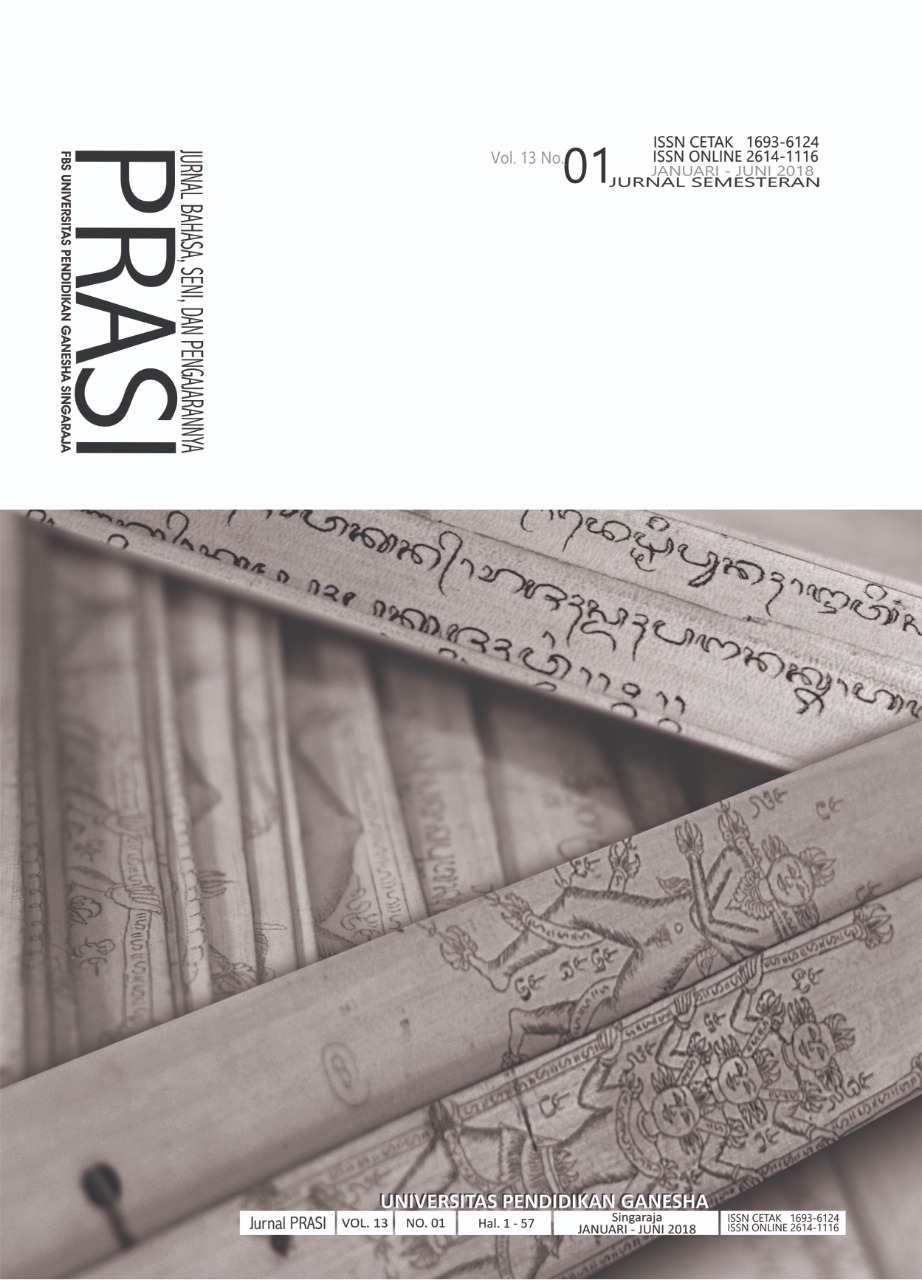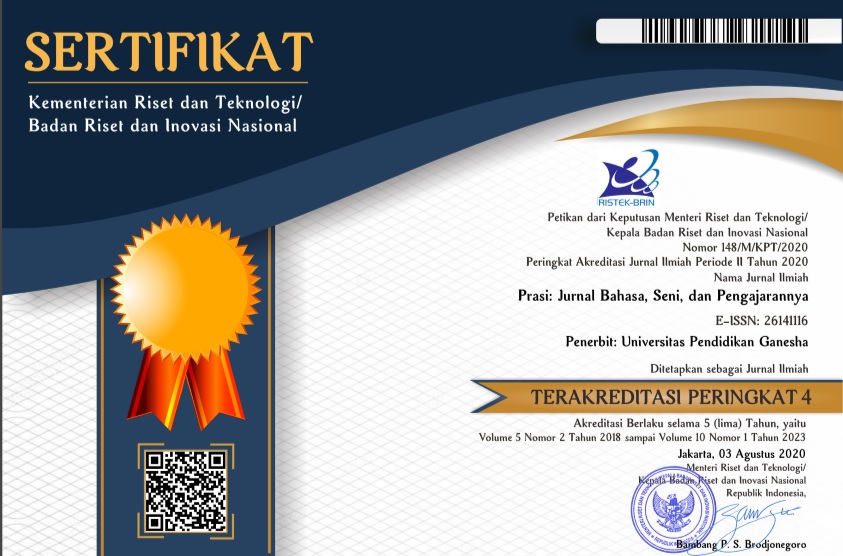PENGEMBANGAN TES KEMAMPUAN BERBAHASA JEPANG BERBASIS WEB
DOI:
https://doi.org/10.23887/prasi.v13i1.16446Abstract
Japanese proficiency test with convenient access as part of technology growth is an urge of this
research. This research was conducted by adopting a Research and Development (R&D) method, using
the lecturers and the students in Japanese Education Department - Universitas Pendidikan Ganesha -
as the research subjects, while a web-based test was plotted as the research object. A web-based test
was concluded as the result of the requirement analysis phase, in order to facilitate administration of
graduation standards. On the development phase, the web system was designed focused particularly on
user experience so end user could experience the system in a convenient way. Content experts declared
that the tests have been created have a good quality. After conducting expert judgement, limited test (20
grade-4 students) were held, as result, it has a very high point of both reliability level and user response.
By empirical validity, some test-questions were recommended to be changed as they have high item difficulty
and low item discrimination.
Keywords: Nihongo Noryoku Shiken, web-based test, item difficulty, item discrimination
Downloads
Published
Issue
Section
License
Authors who publish with Prasi agree to the following terms:- Authors retain copyright and grant the journal the right of first publication with the work simultaneously licensed under a Creative Commons Attribution License (CC BY-SA 4.0) that allows others to share the work with an acknowledgment of the work's authorship and initial publication in this journal
- Authors are able to enter into separate, additional contractual arrangements for the non-exclusive distribution of the journal's published version of the work (e.g., post it to an institutional repository or publish it in a book), with an acknowledgment of its initial publication in this journal.
- Authors are permitted and encouraged to post their work online (e.g., in institutional repositories or on their website) prior to and during the submission process, as it can lead to productive exchanges, as well as earlier and greater citation of published work. (See The Effect of Open Access)


.png)
.png)









